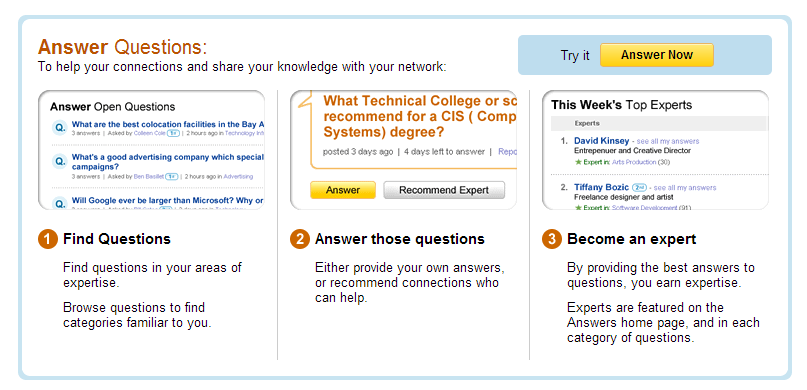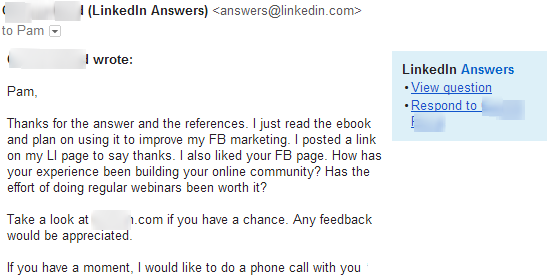Daily Archives: January 19, 2013
Social Media and Self Control | Bedford Corners Realtor
The Bike Radar cycling forum I frequent has a fascinating thread whereby a member asked for, and then proceeded to ignore, countless pages of dietary advice. The online car crash is regularly interspersed with photos of the original poster stood on scales and sharing images of the bad food he’s just bought sat on his car seat.
As the thread is approaching 40 pages in length it has drawn accusations of trolling, but an interesting new research paper by the University of Pittsburgh that looks at how social sharing may limit our self control.
The paper reveals that when our online social networks consist of close friends, we experience an increase in self-esteem when we browse their profiles. Afterwards however our self-control takes a hit.
Interestingly, social network users with a high proportion of close friends amongst their network, were also shown to have higher body-mass indexes (BMI) and also higher levels of credit card debt.
“To our knowledge, this is the first research to show that using online social networks can affect self-control,” says coauthor Andrew T. Stephen, assistant professor of business administration and Katz Fellow in Marketing in the University of Pittsburgh’s Joseph M. Katz Graduate School of Business and College of Business Administration.
“We have demonstrated that using today’s most popular social network, Facebook, may have a detrimental affect on people’s self-control.”
About the study
Participants in the study completed surveys to determine how close they were to their social network on Facebook. They were then divided into two groups. One group wrote about browsing Facebook whilst the other group actually did. They were then asked to complete a survey to gauge their self-esteem.
The results were fascinating. Regardless of whether participants actually browsed or just wrote about browsing, those with weak ties showed no bounce in self-esteem, whilst those with strong ties did.
Social snacking
Further studies explored the impact of social sharing on our willpower. Participants were asked to either check Facebook or read articles on CNN, after which they were given a choice between eating a granola bar or a choc-chip cookie. The Facebook browsers overwhelmingly chose the cookie.
Another study tested the mental fortitude of social networkers by again asking participants to browse either Facebook or TMZ.com, which is a celebrity gossip site, after which they were given a word puzzle to solve. Even though neither site is particularly weighty, Facebook users gave up on the puzzle much faster.
A final study then explored the relationship between social networking and the kind of behaviours that typify poor self-control. Participants were asked questions such as their weight, their debt history and how many friends they have offline.
“The results suggest that greater social network use is associated with a higher body-mass index, increased binge eating, a lower credit score, and higher levels of credit-card debt for individuals with strong ties to their social network,” the researchers write.
The moral of the story seems to be that if you want something that requires willpower, using social networks is not the best idea.
Free Instagram Social Analytics Tools | Pound Ridge Real Estate
HSBC to pay $249 million to end foreclosure probes | Bedford NY Real Estate
International bank HSBC signed onto an agreement that effectively ends the companies’ review of questionable foreclosure practices.
Rather than using an independent review process already in place, the bank will address the issue through a one-time settlement with impacted homeowners.
The mega bank is joining 12 other servicers that already ended independent foreclosure reviews by opting to solve legacy foreclosure processing claims through a cash settlement.
HSBC alone will pay $249 million in both direct cash payments and foreclosure assistance to borrowers harmed by sloppy or questionable foreclosure practices, the Office of the Comptroller of the Currency said Friday.
Of those funds, $96 million will go to eligible borrowers, while $153 million will cover loan modifications and deficiency judgments.
The Federal Reserve and OCC released similar deals with other major servicers, including Aurora, Bank of America ($11.14 -0.14%), Citibank ($41.66 0.42%), Goldman Sachs ($144.45 3.44%), JPMorgan Chase ($46.46 0.02%), MetLife Bank ($36.31 -0.05%), Morgan Stanley ($22.38 1.63%), PNC ($61.84 -0.17%), Sovereign, SunTrust ($29.14 -0.43%), U.S. Bank ($32.87 0.11%) and Wells Fargo ($34.93 -0.1%).
With HSBC added to the pile of settling firms, 4.2 million borrowers will receive about $3.6 billion in cash to be distributed among them. Another $5.7 billion will be used to offer mortgage assistance.
Federal regulators moved to the one-time settlement approach after finding the foreclosure review process too costly and inefficient.
Worst Of Foreclosure Crisis Is Over But Problems Remain | Pound Ridge Realtor
LinkedIn Removes its Best Feature | Bedford Hills Real Estate
I was beyond dismayed to receive an email this morning from LinkedIn, indicating that they are retiring their (in my opinion) best feature: LinkedIn Answers.
LinkedIn Answers is (was) a Quora-type question and answer forum, where business people could ask for advice in a variety of topical categories. In turn, professionals could answer questions in their area of expertise, which in my experience, was THE best lead-generating activity one could do on LinkedIn.
Why LinkedIn Answers was the Best
LinkedIn Answers was better than any question and answer forum on the web for several reasons:
1) Credibility: Nowhere else on the web can you get an answer to a question and immediately click through to review the person’s entire professional history. This provided an instantaneous and thorough way to evaluate the credibility of the advice given.
LinkedIn Answers also helped professionals add credibility to their LinkedIn profiles. The act of answering a question generated an activity item on one’s profile, which also showed up in the news feed of their connections. Additionally, after answering enough questions in a category, one could earn “Expert” status and be featured on the Answers homepage and in those categories.
2) Focus: The questions and answers being traded on LinkedIn Answers were about business. Although other question and answer sites have categories for business, there are none that are as business-focused and as widely used by business professionals in the world. Because of LinkedIn’s enormous worldwide presence, one could find an expert to answer even the most obscure/niche business questions through LinkedIn Answers.
3) Organization: Today’s LinkedIn email suggests asking questions in groups and via polls. This is highly ineffective for two reasons. First, groups are incredibly noisy places where people constantly try to promote themselves. In my experience, very little “real” discussion occurs in groups. Secondly, Polls have no categorization and are only viewed by connections. In LinkedIn Answers, I could ask my question in a specific category and get an answer from an expert in that category, regardless of whether I was connected to them or not.
4) Lead Generation: In the experience of my colleagues, clients, and myself, LinkedIn Answers was hands-down THE best lead generation tool on the site – perhaps even on the entire web. The psychological concept of reciprocity never failed me when I was answering questions on LinkedIn Answers. If I took the time to give a very thorough and helpful answer, the asker would nearly always write me back a personal message of thanks, and would often either ask to have a further discussion (hello, LEAD!), connect with me and follow me elsewhere (increasing my exposure to their network), and/or share my content with others (because it helped them so much). The “pay it forward” and “give to get” concepts that go along with answering questions on LinkedIn Answers never failed to get me leads and enhance my business presence on the web.
Irreplaceable Value
Where can I go for all of that now? Nowhere.
How LinkedIn Killed its Best Feature
LinkedIn greatly diminished the potential of its Answers feature by hiding it. It didn’t even have it’s own menu item in the site’s main navigation. One had to click on the “More” menu item at the far right to find it.
I kid you not, just last night I gave a presentation about LinkedIn to 27 business professionals, of whom nearly all were members of LinkedIn. When I asked who had heard of LinkedIn Answers, not a single hand went up. I then proceeded to tell them about the feature and show them examples of how it had produced leads for me. Many were beyond excited to try it.
I now have to message them all and tell them that LinkedIn decided to remove this incredibly valuable lead-generating tool, and that there is nothing on the web as nearly as relevant for business people as this forum was.
What Great Feature will LinkedIn Kill Next?
First they nixed the Events feature (which was GREAT for driving business people to events like seminars and webinars), and now they killed their best lead-generator.
What feature do you think they will remove next?
Housing recovery to occur in fits and starts | North Salem NY Real Estate
Analysis: More Americans leave parental nest in boost for housing | Waccabuc Real Estate
5 Awesomely Bad Listing Photos | Cross River Real Estate
Current Confidence Index for Single-Family Homes Steady | South Salem NY Real Estate
The majority of REALTORS® continued to report rising home prices and improving days on the market. However, REALTORS® reported that the market remains hampered by a “demanding and rigid loan qualification process” that has made mortgage underwriting “a nightmare” and “the toughest hurdle.” This has led to cash buyers and investors easing out first time buyers using mortgage financing. Low inventory persists and REALTORS® have reported homes selling above the list price. Policy uncertainty on a variety of economic and and tax issues, mainly due to the tepid job growth and measures to avert the the fiscal cliff — continues to dampen the market. Hurricane Sandy also caused a temporary market slowdown in the affected areas, although a recovery is anticipated in the coming months.
What Does This Mean for REALTORS®?
Concerns over the residential home sale market are probably reflective of current economic uncertainties. In fact, the home sales markets have been recovering in price and sales in many areas, and mortgage rates are low—although finding a mortgage may take a number of applications. REALTOR® confidence is well above its level two years ago, and prices and sales are slowly increasing. Assuming that the economy continues and that the fiscal cliff issue is addressed — which is the assumption of most economists — one would expect a continued expansion of home sales.











